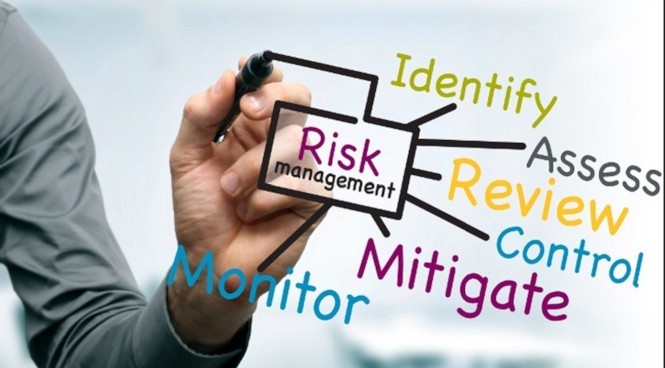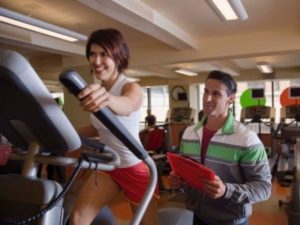
Diagnosed with Cancer? Your two greatest challenges are understanding cancer and understanding possible side effects from chemo and radiation. Knowledge is Power!
Learn about conventional, complementary, and integrative therapies.
Dealing with treatment side effects? Learn about evidence-based therapies to alleviate your symptoms.
Click the orange button to the right to learn more.
- You are here:
- Home »
- Blog »
- non-conventional therapies »
- Can Childhood, AYA Cancer Survivors Heal Frailty, Cognitive Decline?
Can Childhood, AYA Cancer Survivors Heal Frailty, Cognitive Decline?

I am an AYA survivor. I was first diagnosed at 34- pretty old as AYA patients go but I still fall into the AYA category. More importantly, I have lived with long-term and late stage side effects since the late 1990’s.
Yes, my experience is that Childhood and AYA cancer survivors can heal long-term side effects such as frailty and cognitive decline. I believe this because I have been healing my own heart, brain, bone, nerve, etc damage. Let’s be clear. I started working on healing my long-term side effects long after I should have.
No one told me that I would develop brain, nerve, bone, skin, heart, etc. damage. No one told me to exercise, consume specific foods and supplements, undergo regular acupuncture, etc. I’m not whining. I’m simply saying that I got a late start.
I think if the average childhood and AYA cancer survivor began eating, supplementing, exercising, etc. shortly after they completed conventional chemo, radiation, etc. I think they would GREATLY reduce their risk of long-term and late stage side effects discussed below.
It is not all or nothing, frail or hearty. Every cancer survivor who undergoes aggressive, high dose chemotherapy and/or radiation will experience some degree of long-term and late stage side effects eventually. It is not a matter of if. It is only a matter of how much and when.
The recommendation from conventional oncology is to monitor the survivor for any health problems. The problem with only monitoring the health of the survivor is that once the late stage affect takes hold, it’s too late.
My recommendation, my therapy, what I have been doing for years is living an anti-aging lifestyle. By anti-aging, I don’t mean I smooth some sort of cream or wrinkle serum on my face each morning. I’m talking about a regimen of
- daily, moderate exercise,
- daily nutrition
- daily supplementation
- etc.
Evidenced-based, non-toxic therapies that have been shown to slow aging or grow telomere length.
I consider the proof to be in the pudding, as the saying goes. As of the writing of the post, I have been living with an incurable blood cancer for more than 25 years. I have been living with a risk of treatment-related secondary cancers of more than 25% annually. I have been living with chemotherapy-induced Cardiomyopathy and Afib since my diagnosis in late 2010.
And doing so without any conventional therapies. I walk the walk, practice what I preach, yada yada.
Click now to learn more about inflammation
To learn more about healing the damage done by aggressive chemo and radiation, scroll down and send me a question or a comment. I will reply to you ASAP.
Thanks and hang in there,
David Emerson
- Cancer Survivor
- Cancer Coach
- Director PeopleBeatingCancer
Recommended Reading:
- A Long-term Multiple Myeloma Survivor’s Diet, Nutrition Plan-
- Surviving Multiple Myeloma- Post-Cancer Fear
- Cancer Coaching Testimonials- PeopleBeatingCancer
Scientists link frailty and neurocognitive decline in childhood cancer survivors
“Though frailty is often associated with the elderly, 8% of young adult childhood cancer survivors meet the criteria for frailty. This study confirms that those who undergo childhood cancer treatment can experience frailty, which can create an early onset of neurocognitive decline in young adults…
More important than previously recognized
Cancer-related neurocognitive impairment is present in up to 35% of childhood cancer survivors. It can influence all aspects of their lives, including their physical functioning and daily activities…
The intensive chemotherapies that young adult survivors experience during their childhood years are known to contribute to health problems later in life. Frailty is just one such late effect of care…
“Since frailty has now been shown to contribute to neurocognitive deficits among other health problems, it is increasingly apparent that addressing frailty may aid this patient population…”
Physiologic Frailty and Neurocognitive Decline Among Young-Adult Childhood Cancer Survivors:
“Childhood cancer survivors 18-45 years old (≥ 10 years from diagnosis) were clinically evaluated for prefrailty or frailty (respectively defined as ≥ 2 or ≥ 3 of: muscle wasting, muscle weakness, low energy expenditure, slow walking speed, and exhaustion…
Chronic health conditions in adult survivors of childhood cancer
“We calculated the frequencies of chronic conditions in 10,397 survivors and 3034 siblings. A severity score (grades 1 through 4, ranging from mild to life-threatening or disabling) was assigned to each condition..
Survivors and siblings had mean ages of 26.6 years (range, 18.0 to 48.0) and 29.2 years (range, 18.0 to 56.0), respectively, at the time of the study. Among 10,397 survivors, 62.3% had at least one chronic condition; 27.5% had a severe or life-threatening condition (grade 3 or 4)…
Conclusions: Survivors of childhood cancer have a high rate of illness owing to chronic health conditions.”

